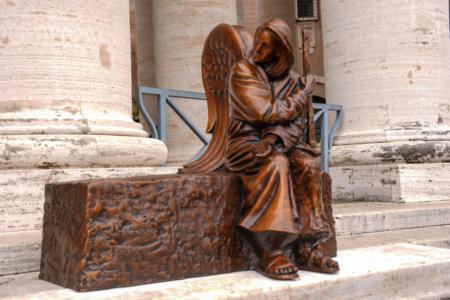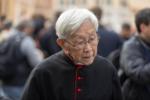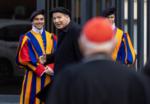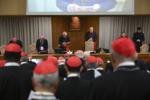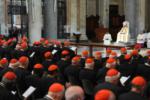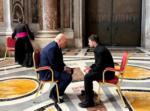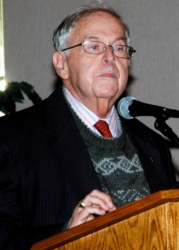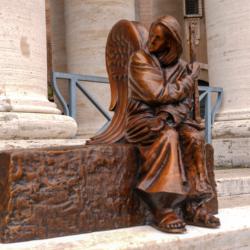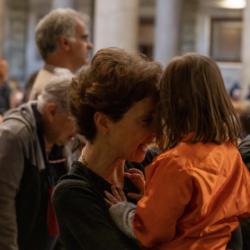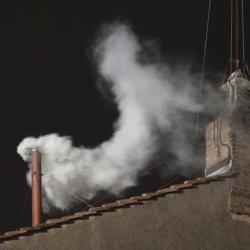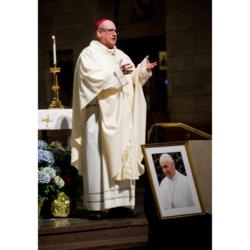Spanish- speaking catechists urged to encounter ‘the Living Christ’
RANDOLPH Religious education leaders were invited to “An Encounter with the Living Christ,” this year’s theme at the Catechetical Congress held Nov. 17 at The Lantana.
With a variety of workshops, such as “Let us live the richness of the sacraments” and “An encounter with the young Christ” as well as two keynote speakers, more than 320 Spanish-language catechists, religious education directors, youth ministers, young people and catechetical leaders gathered to fortify themselves in their mission for the coming year. Also present were several students of the Instituto de Formacion de Laicos, the Spanish-language lay formation program of the archdiocese.
The daylong event began with a multilingual prayer service, held jointly with the English-language Catechetical Congress participants. Cardinal Seán P. O’Malley presided over the prayer service, in which he stressed the importance of passing the faith to a new generation of disciples.
Following the prayer service, the morning workshops covered a host of topics, from the personal: “Do you communicate with your children?” led by Enrique Mendez, pastoral associate at St. Stephen Parish in Framingham, to the professional: “Dynamic catechetical programs,” led by two professors from the Instituto de Formacion de Laicos, Daisy Gomez and Father Alberto Ares, SJ.
Speaking on the congress’s theme, keynote speaker Victor Valenzuela, National Religion Consultant for Bilingual Resources for William H. Sadlier, Inc., began his talk by reflecting on the Gospel story of the encounter between Jesus and the Samaritan woman at Jacob’s Well. In the well-known passage of John 4, Jesus tells the woman, “whoever drinks the water I shall give will never thirst; the water I shall give will become in him a spring of water welling up to eternal life.”
He then spoke of two problems that the Latino Catholics face today -- that many Hispanics are leaving the Catholic faith to other independent Christian churches and that young people are also leaving the Church in droves.
“Do you know who I blame for Hispanics leaving the Church? Us. Catechists,” he declared.
According to Valenzuela, “people are not fully taught, not fully catechized.”
He added that, among many Hispanics, there is often a lack of instruction on the figure of Jesus, which leads to confusion about the tenets of our Catholic faith. Often other Christian denominations use this lack of formation to convince Hispanics that Jesus is not fully present in the Catholic Church.
“Haven’t you been told something like that by someone from another church?” he asked the catechists. Most of the participants nodded their heads in agreement.
“To me, we need catechism because that’s why people leave our Church,” he said, adding, “My sadness is not that they find Jesus in another church, my sadness is that we could not provide them with Jesus.”
“I think it’s because we don’t focus on the person of Jesus,” stressed Valenzuela. “We all know more about actors on Univision than we know about Jesus.”
“In all religious education Jesus should be central, he should never be on the back burner...It is important that we see what we believe of Jesus, how he guides us,” he added.
Valenzuela then went on to point out certain qualities of Jesus’ life that impress him personally: his identity, his mission, his love, his forgiving nature, his commitment to living what he preached and his love for the imperfect of society.
Valenzuela told the audience that “we are all disciples and we have been given the power and the strength to be disciples.”
“Even if you think you aren’t worthy, it is our duty and responsibility to be catechists of our Church.”
In order to be a disciple, he said, we are called to be prophets, to preach with authority, to love, to be compassionate, to live what we preach and to forgive others.
Valenzuela concluded his address by asking all the participants to look at their hands.
“In our hands is Christ. In our hands is the mystery of who Christ is,” he said.
Following lunch, the congress attendees participated in another session of workshops before Jose Planas, associate director of religious education for the Hispanic population in the Archdiocese of Newark, delivered the final keynote address.
Continuing on the theme of the Samaritan woman, Planas’ talk was entitled, “Lord, give me some of that water.” During his talk, Planas exhorted the catechists to “have total communion with Jesus Christ, not just during religious education, but 24 hours a day.”
“Jesus had an encounter at a well,” began Planas. He pointed out that Jesus broke the ice with the Samaritan woman.
“How many times are we incapable of breaking the ice? Throughout the world there are people eager to talk -- either because they have problems or because they are no longer allowed to talk in their homes,” he continued. “Let us be the helpers to the priests who are overworked.”
Jesus was asking for water, he continued, something the Samaritan woman didn’t understand.
“Jesus asks you to ask for his presence every day. What time do you give to Jesus? What time do you give to your family,” he interrogated the assembly. “Don’t always leave God and family time to tomorrow.”
Continuing the Gospel, Planas pointed out that the Samaritan woman immediately goes to tell others that she has found the Christ.
“And you -- do you go tell others about God? Confess the God that you have,” he stressed.
“If I want to be a disciple, I have to live the lifestyle of God, which is summed up in one word -- Love God and your neighbor as yourself.”
Planas concluded his talk urging each person to “train yourself to be a disciple of Christ.”
“This Christmas season when we put the Bethlehem in our houses, we pray that we can truly have Jesus be born in our hearts,” Planas prayed, “Let the four weeks of Advent, leading up to Christmas be a time to prepare ourselves for the birth of Christ.”
Participants left the day full of zeal to continue their mission of catechizing.
Maria Tula, a 16-year-old from Holy Redeemer Parish in East Boston was awed by the Catechetical Congress.
“I have never been to a congress like this before, and I have been fascinated by the entire day,” she said. “I hope to return again next year.”
For Pedro Diaz, from St. Mary of the Annunciation Parish in Lawrence, the day’s events left him with cautious optimism.
“I think it’s very important to have this Catechetical Congress. It tells us what a catechist is and what a catechist should be. Hopefully people won’t just leave saying how beautiful today was and will put into practice what they’ve heard today.”
